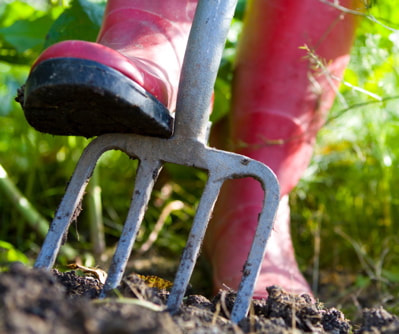|
3/6/2018 0 Comments Cultivating the SoilEver since fourth grade, Frances Hodgson Burnett's 'The Secret Garden' has been a favorite of mine. One of the quotes that has stuck with me well into adulthood is when a very timid Mary asks her guardian, Mr. Craven, 'Might I have a bit of earth?" But only as of late have I noticed his response: “When you see a bit of earth you want,. . . take it, child, and make it come alive.” The Soil & it’s Amendments
‘I find that a real gardener is not one who cultivates flowers; but one who cultivates the soil.’ Karel Kapek When to Work the Soil & When to Plant One of the easiest ways to know when the soil is ready to be worked is by doing the simple ball test: form a ball of soil in your hand, then press your thumb into it. If it breaks apart, the soil is ready to be worked. If the ball of soil does not break apart, the soil is too wet, so waiting a little long is best. Another common mistake among anxious gardeners is to plant before the soil is warm enough. Some seeds will germinate in soil temperatures of 60 degrees (like peas). Other seeds, like pumpkin and squash, need warmer soil temperatures of 80 degrees to germinate. The best way to know when the soil is warm enough is to use a soil thermometer - it takes the guesswork out . A soil temperature chart is also helpful as it lists crops and their optimal temperature ranges for germination. Click here for your free chart! Soil Amendments Soil pH is probably the most important factor in how well a plant will grow. If the pH is out of wack, then plant roots are unable to break down nutrients in the soil and make them available for the plant to absorb. Our soils in southeastern Wisconsin are naturally alkaline, so adding lime to the soil before planting is not necessary. Most likely soil will need to be amended with sulfur or peat moss in order to lower the pH, but rather than guess how much, a simple soil test should be done. You can do this yourself with a pH tester available here at Burlington Garden Center. If you want a more exact analysis, then a soil test can be taken and mailed away and analyzed for a cost. Ask us for information and a free envelope if you want to pursue this. How to achieve the best soil? Once you know that the pH is in line with the crop you are growing, the next best thing you can do is feed the soil. By feeding the soil, in essence, you are feeding your plants. In fact, by adding organic matter, your soil becomes more alive with microbes that break down nitrogen - which is necessary in order for plants to use it and grow healthy green leaves. Adding organic material in the form of compost is the best way to feed the soil. If you have a compost pile, add compost to the soil in the fall or in the early spring. If you don't make your own compost, then here are a few we recommend: Leaf compost (nature's black gold) Nature's Blend w/Alfalfa & Humates (a wonderful mix of cottonburr compost, cow manure, alfalfa, and humates) Mushroom compost (use every 3 years to avoid a build up of salts) Chicken or cow manure (aged for a year is best) Cotton burr compost (not only is this a great soil amendment, but many gardeners use it as a mulch around their perennials) Worm Castings (are another good source of microbial activity) All of the above amendments are available here at BGC. Remember, healthy plants begin with healthy soil. Let us know how we can help you make this year your best year growing in the garden. And in the spirit of Mr. Craven "When you see a bit of earth you want,. . . take it, and make it come alive.” - Tracy Hankwitz BGC General Manager & Horticulturist
0 Comments
Leave a Reply. |
|
|
STORE INFO
5205 Mormon Road Burlington, WI 53105 262.763.2153 |

